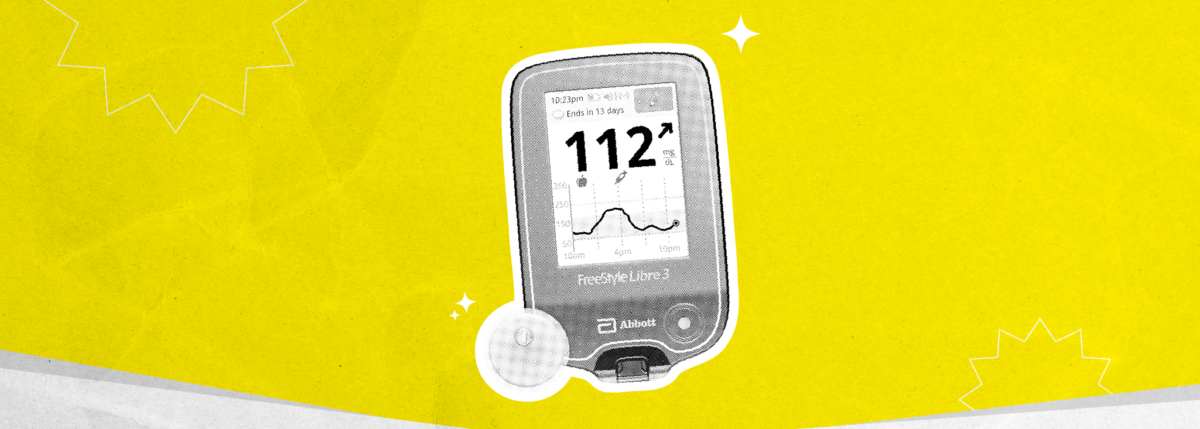LeAnne’s Type 2 Diagnosis + Connecting With Others On Social Media
Written by: Erika Szumel
6 minute read
April 13, 2022
From crash dieting to a type 2 diabetes diagnosis, LeAnne shares her story.
Editor’s Note: Get involved in Beyond Type 2’s #SeeTheSigns of diabetes campaign! Share your signs to help save lives, get sharable graphics for social media and more! Learn more here.
This interview has been edited and condensed for clarity.
In this social media age, we’ve learned the advantages and disadvantages of sharing our own stories and following along as others share theirs. Unfortunately, there is a ton of misinformation out there – especially in the type 2 diabetes world.
LeAnne Manuel started crash dieting and exercising excessively for weight loss several years ago, and her Instagram journey took a turn. So she left Instagram. When she was diagnosed with type 2 diabetes in June of 2021, it was the right time for her to re-enter the social media verse and share her story.
LeAnne spoke with us about her weight loss journey, her type 2 diagnosis and how connecting with others on social media has become a very positive part of her life.
BT2: Hi, LeAnne. Thanks for speaking with us today. Can you tell us about your diagnosis?
LeAnne: When I was diagnosed with type 2 diabetes, I was at a point in my life where I wanted to be healthier. I wasn’t feeling good and I thought that it all had to do with a previously diagnosed thyroid disorder, Hashimoto’s disease. I remember thinking, “I’m going to the doctor and I’m going to really take control of this.” I went to the doctor on June 22nd, 2021, and while I was there, I told her how bad I was feeling. She ordered my annual lab work. The results slowly started to trickle in and on the 25th, I got a notification that I had new results pending. The results showed that my A1C was 6.6. I didn’t understand what that meant, but what struck me was a note below that read, ‘this result is indicative of diabetes.’ I hadn’t heard from my doctor yet at that point, so I learned right there by myself on my phone. I was in utter shock, I’m 32 years old. I don’t have a family history of type 2 diabetes and I don’t know anybody that I’m close with that is a diabetic, so I was scared for myself and for my family. I didn’t know what to do at that moment.
I went through several stages of grief as I absorbed the information. It was extremely difficult. It was probably the hardest thing that I’ve ever read in my life.
My diagnosis still feels new and I am still learning. I had to learn the basics, more about my own body, what works best for me and how to balance life with type 2 diabetes.
What were some of the symptoms you had when you were diagnosed? Did you have any?
I have Hashimoto’s disease, a thyroid disorder, and just a couple months before this, I’d had a bad test result for my thyroid. I was feeling really tired and was struggling to lose weight. In addition to that, whenever I would eat gluten or overeat, I would feel really sick. After I’d overeat, I’d experience bad brain fog. It would almost feel like I was going to pass out, so that’s why I originally went to the doctor. I was attributing my symptoms to my thyroid condition and didn’t take into consideration that I could have type 2 diabetes as well.
What is something you wish you knew when you were first diagnosed?
One thing that I wish I knew is that there is a lot of narrative in the weight loss community that type 2 diabetes can be cured with weight loss, which isn’t true. People can go into remission and can get their A1C to a normal level, but they will be ‘diabetic’ for the rest of their life. With this diagnosis, it’s something that you need to be cognizant of forever. You can’t just lose a little bit of weight and forget about it. I did not understand that at first but I do now. I talk about that quite a bit with other people too—that we need to forget this narrative that you can cure yourself when that’s not necessarily the truth. You can get to a better spot, but you’re not going to be cured. This is something that we will live with for the rest of our lives.
What was your doctor’s course of action once you were diagnosed? When I went to see her on June 22nd, I had already told her prior to my diagnosis that I wanted to get my health back in order. I wanted to start feeling better. I’m a big fan of working closely with your healthcare provider. I trust my doctor and I feel like she knows me very well. I had already made a plan prior to this visit to start using MyFitnessPal to start logging my calories. I did not want to go into any sort of crash dieting mode or fad diet mode, but rather I wanted to become more cognizant of what I was eating. Our new plan involved cooking at home more often, making better health choices and taking metformin. I also take a once-weekly injection of Ozempic, which my doctor felt would help with my type 2 diabetes diagnosis, my weight and digestion.
Have these medications helped you better manage your diabetes?
I’ve lost over 90 pounds since I started taking these medications and making healthier lifestyle choices. It has been a slow and steady process for me. These medications are the hardest medications I’ve ever had to take. The Ozempic has been a difficult adjustment because at first I didn’t feel well while taking it and was experiencing severe headaches. Once I realized that I wasn’t drinking enough water, I started to feel better. I think these were the right medication choices for me. My last A1C was 5.0, and I’m super happy with those results.
How important is exercise to you?
I think everyone has a different relationship with exercise. Personally, I had a bad relationship with exercise and I have for a long time. I knew that I needed to find an approach that worked for me, and that I needed to find exercise that served me well both mentally and physically. I downloaded the Peloton app after several people suggested it to me. At the time, I was still way over the Peloton weight limit and I still am, so I haven’t been able to buy a Peloton bike. I’m not going to until I feel like it’s a good decision with the weight limit, but I use the Peloton app with a different stationary bike that I have. I also have an elliptical and I like to do at-home cardio workouts in my living room. I would recommend the Peloton app to anybody that struggles going to a gym like I do and just doesn’t feel like that’s the right space for them. I’m so glad that so many people recommended it to me because I didn’t know that you could use it without having a Peloton bike. There’s a lot more to it.
Now that it’s finally starting to warm up here in central Indiana, we’ve been going on lots of walks outside and taking my dog to the park pretty often. These things serve me well mentally and physically.
How have you used social media to document your journey and inspire others?
I started sharing my journey on Instagram in 2015, and I lost over 160 pounds at that time, but I lost the weight in an unhealthy way. Sometimes it’s a little embarrassing to say it out loud, but I was crash dieting and over exercising, and ended up with several mental health issues. I stopped posting on Instagram in 2017, and didn’t post again until after 2018. I decided to come back to Instagram in 2021, right around the time I went to the doctor and was trying to get healthy again. When I came back to Instagram, I laid it all out there. I laid my truth out there to tell people what I’ve been through and why I’ve been away for so long. I received a really positive response. I’m so glad that I did because I’ve been able to really change the narrative around all of the horrible dieting I did.
I think being honest with people about the struggles and sharing more authentically online is so important. I had several people I could talk to about my diagnosis, and I still talk to them every day. I talk to new people that are scared, people having issues with medications and people that are having the same struggles that I had adjusting to the Ozempic. Authenticity is most important to me. I don’t want people to think that the only thing that they can eat is grilled chicken with steamed broccoli. That’s what several of the weight loss groups were teaching back in 2015.
Is there anything else you’d like to add?
I want to remind people that it is so important to go to your annual doctor’s visits. It’s so important to go to the doctor because the sooner you have all the information about your health, the better. It will make a difference in the long run, whether type 2 diabetes is a part of that or not.
Follow LeAnne’s journey on Instagram.
YOU ARE NOT ALONE. JOIN THE BT2 COMMUNITY!
A place for everyone impacted by type 2 diabetes to share their stories, get connected to one another and find resources on topics from daily management to mental health. Now with the support of our friends at the American Diabetes Association, get instantly connected to other people who just get it—ask questions, share successes, vent about it in a safe and respectful platform designed specifically for people impacted by type 2 diabetes (T2D). Here you’ll find a collection of practical ideas, stories and resources in both English and Spanish, for not only living with type 2 but thriving with it.
Were you recently diagnosed? Learn how to find the mental health support that you need here and how to find a mental health provider here.
Want to share your story with us? Share your story or submit clinical content here.
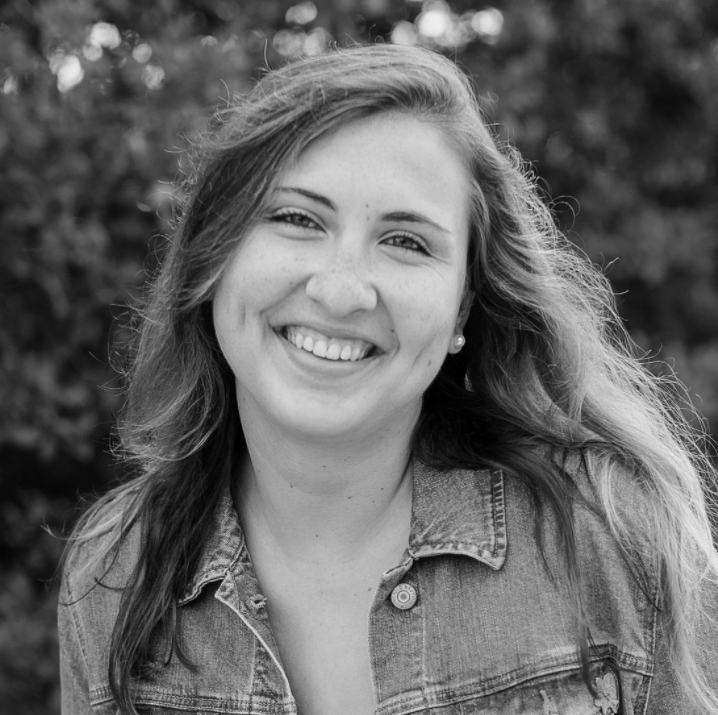
Author
Erika Szumel
Erika has been living with type 1 diabetes (T1D) since 2000 and has strived to be an advocate for the diabetes community ever since. Every November she shares her thoughts and photos on living with T1D on Facebook to help raise awareness for the disease. Erika earned her BA in Visual & Sound Media at Seton Hall University in New Jersey and began her career as a TV producer. Living at the Jersey shore, Erika is a lover of the little things, the ocean and pork roll.
Related Resources
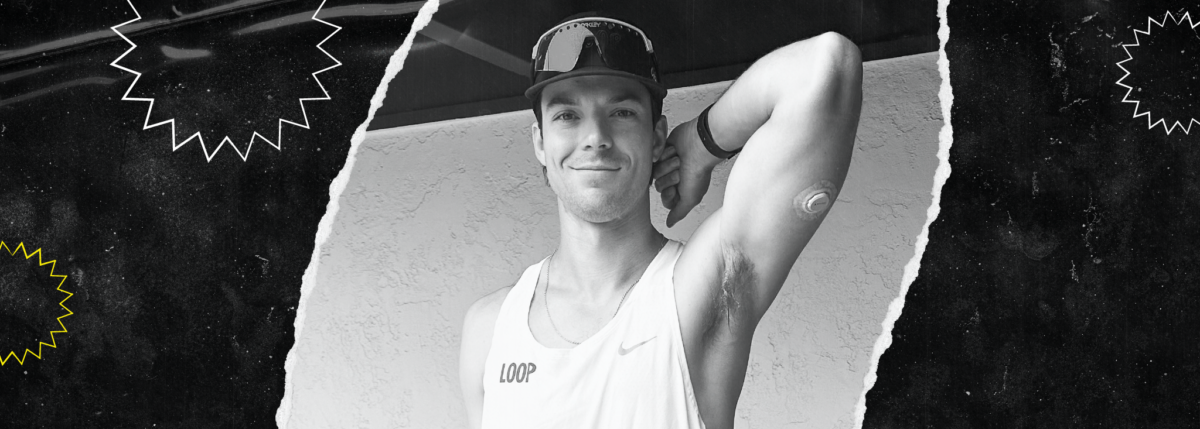
Jordan Sooter’s journey to running marathons began in college as a way to stay fit....
Read more
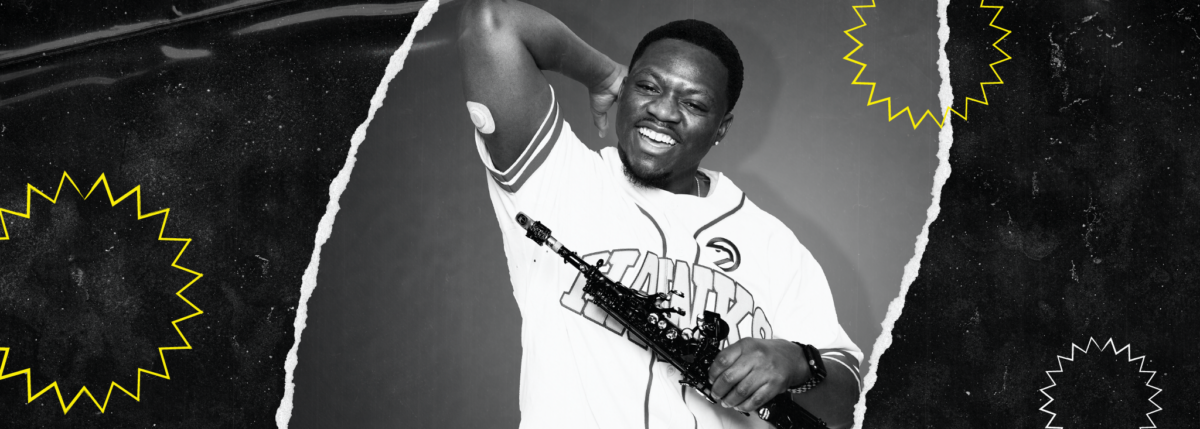
Antoine Gibson is no stranger to overcoming challenges. As a saxophonist and marathon runner living...
Read more
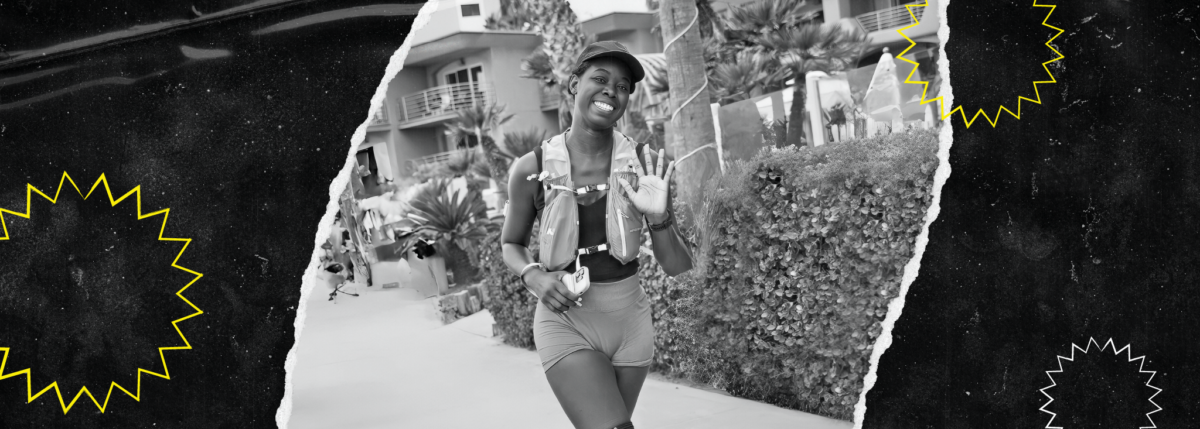
Danica Collins not only prepared for one of the most challenging physical events of her...
Read more

